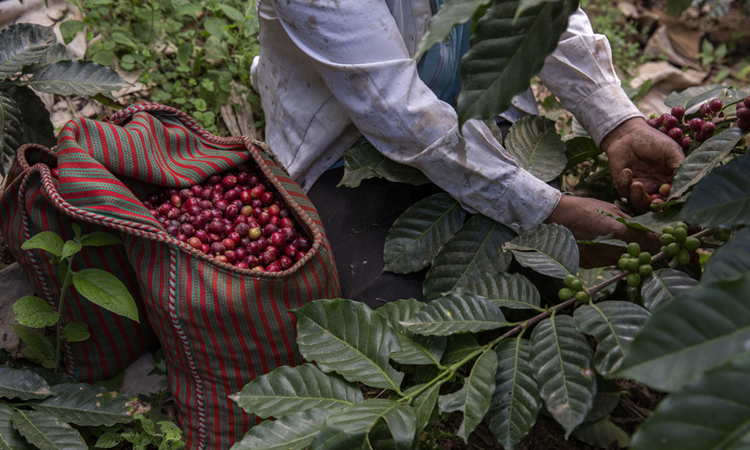Bonn, 1 April 2020 – Fairtrade International announced increased flexibility in its standards to enable producer organisations to take immediate action to protect the health and livelihoods of farmers, workers and their communities in response to the COVID-19 pandemic.
‘Many farmers and agricultural workers in the global south are already beginning to feel the economic effects of COVID-19, although in many cases the health impacts are still to be seen,’ said Gelkha Buitrago, Fairtrade International’s Director of Standards and Pricing. ‘The new guidance we have just approved makes it possible for Fairtrade certified producer organisations to make decisions and act quickly on things that will keep farmers and workers safe, or provide needed extra income during this uncertain time.’
Endorsed by the Fairtrade Standards Committee last week, the new guidance applies to all types of Fairtrade certified producers, from small-scale farmer co-operatives to larger farms with a hired workforce. The guidance either confirms that an existing provision of the Fairtrade Standards has been put into effect, or explains a change to the existing Standards.
The new guidance confirms that producer organisations can spend Fairtrade Premium funds more flexibly to minimise the spread of disease, such as by purchasing and distributing face masks or other personal protective equipment, or by implementing hygiene campaigns. The Fairtrade Premium is an extra sum on top of selling price that producer organisations earn on every Fairtrade sale, and invest in projects of their choice to benefit their businesses and communities. Fairtrade producers earned more than €187 million in Premium in 2018.
Producer organisations can also now make faster decisions on spending Premium funds on the COVID-19 response. Organisations can take action without waiting for approval at their required annual General Assembly meetings, and will instead document expenditures for retroactive ratification.
In hired labour organisations, whose employees are likely to be hardest hit by loss of sales or inability to harvest, the worker-run Fairtrade Premium Committees may distribute up to 100 percent of their Fairtrade Premium funds as direct cash distributions to workers, effective through 30 September 2020. This is an increase from the usual 20 percent, or 50 percent in certain circumstances. The committees do not need to make a formal request to the independent certifier, FLOCERT, to do so. In-kind disbursements of consumable goods are also allowed. This could benefit around 145,000 workers on Fairtrade certified tea and flower plantations, which earned more than €11 million in Fairtrade Premium in 2018.
Fairtrade International provided guidance on the standards changes on Friday to producer organisations. The letter also called on organisations, particularly those employing workers, to continue to respect fundamental rights and freedoms, to continue paying workers including those required to self-isolate, and to enable workers to keep appropriate safe distance from each other while performing tasks, among other things.
Fairtrade certified producers should refer to the World Health Organisation guidelines and their own national mandates for health and safety. Producers can direct questions about the Fairtrade Standards or the latest guidance to their local FLOCERT contact, or their regional Fairtrade producer network:
- Fairtrade Africa (Africa & the Middle East): contact the respective regional manager or support officer
- NAPP (Asia Pacific): contact the respective NAPP regional manager or program officer
- CLAC (Latin America & Caribbean): contact the respective development manager
